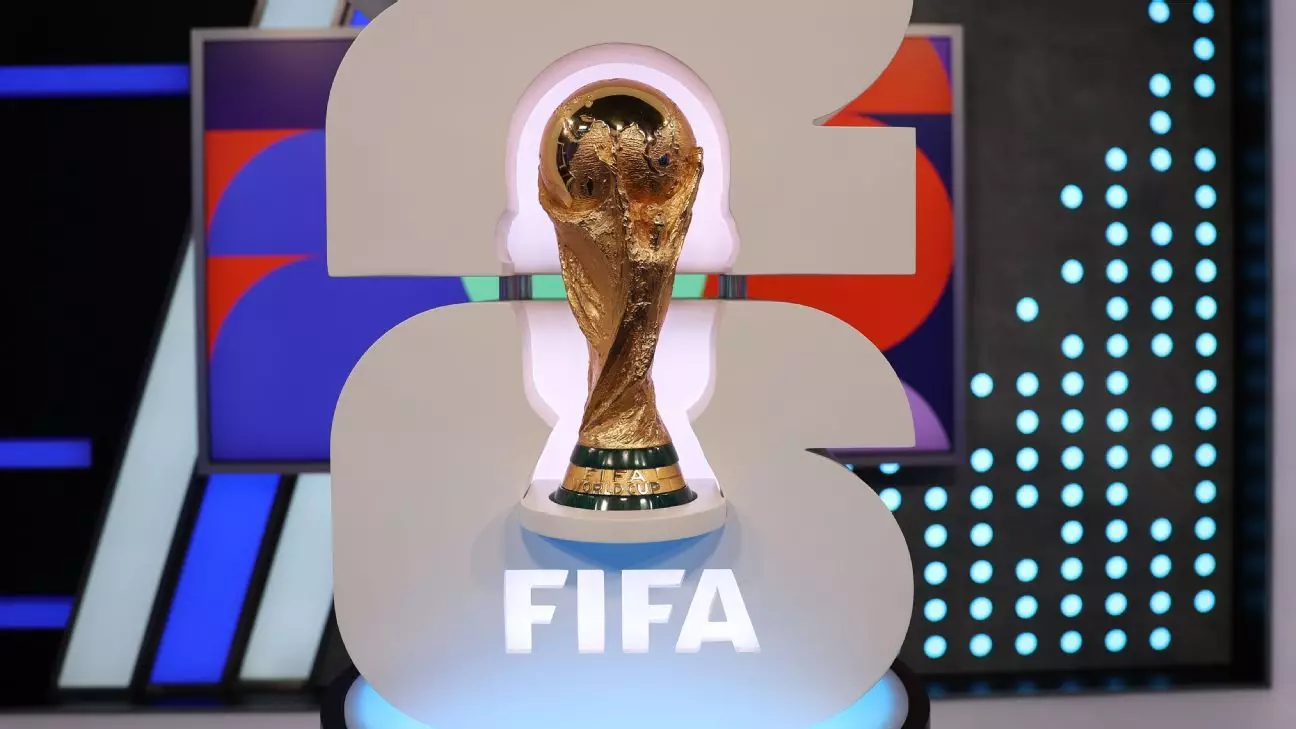The world of football is not merely a platform for athletic prowess; it is often a stage for political and ethical discourse. Recently, the Norwegian Football Federation (NFF) made headlines by announcing its intention to vote against FIFA’s plans for the upcoming 2030 and 2034 World Cups. This decision has prompted a larger conversation about governance, transparency, and ethical integrity within FIFA, an organization that has faced its fair share of scrutiny in recent years.
Concerns About the Bidding Process
The NFF’s critical stance is rooted in significant concerns about the bidding process employed by FIFA. The federation issued a clear statement regarding its discontent, emphasizing that the NFF cannot support a process it deems flawed. Their objections include a lack of transparency and adherence to FIFA’s own reform principles. Unlike competitive bidding, which tends to foster transparency and trust, FIFA’s current procedure features a single bid for each World Cup – a practice that the NFF argues diminishes the credibility of the entire selection process.
NFF President Lise Klaveness voiced that the Congress convening to approve these World Cups is more about critiquing the process than determining the winners. This sentiment highlights a disconnect between FIFA’s intentions and the expectations of its member organizations, particularly concerning accountability and governance.
Compounded with concerns regarding governance is the pressing issue of human rights. The NFF expressed grave apprehensions related to potential human rights violations associated with the infrastructure and labor conditions in countries hosting the World Cups. Notably, the Norwegian federation criticized FIFA for failing to adequately integrate human rights considerations into their evaluation processes. This neglect raises significant questions about the moral implications of awarding hosting rights to nations with dubious human rights records.
Klaveness remarked on FIFA’s own guidelines concerning human rights, indicating that these principles seem to be overlooked. The NFF’s insistence on an open, hopeful dialogue regarding these issues reflects a broader yearning for ethical accountability within the organization.
The implications of the NFF’s decision extend far beyond national concerns; they touch upon the global football community’s trust in FIFA as the supposed custodian of the sport. The federation’s actions serve as an indictment of FIFA’s operational processes, and they advocate for a system that embodies values of integrity and fairness. The absence of competitive bids for the World Cup not only suggests a flawed process but also positions FIFA at risk of eroding its reputation in the eyes of its member countries.
With some nations stepping back from the bidding process, such as Australia and Indonesia, the situation underscores the urgency for FIFA to re-evaluate its strategies. Without fostering an environment where countries feel compelled to compete rather than withdraw, FIFA’s credibility as a governance body is put into jeopardy.
As FIFA prepares to proceed with the acclamation voting, the NFF’s stance may echo beyond Norway. Other federations could adopt similar sentiments, collectively questioning FIFA’s framework and asserting their right to engage in a transparent bidding process. This unfolding drama presents an opportunity to reevaluate the governance models employed in international football—a necessity given the seeming entrenchment of outdated practices.
The NFF’s refusal to endorse the configuration of the upcoming World Cups is ultimately a call for change—a plea for a governance structure that is as robust and fair as the sport itself. Whether FIFA will heed these warnings or continue down a path viewed as inconsistent with fundamental democratic principles remains to be seen.
The Norwegian Football Federation’s decision to oppose FIFA’s processes surrounding the 2030 and 2034 World Cups is noteworthy and indicative of a larger crisis within the organization. As members like NFF demand accountability, ethics, and transparency, the future of FIFA rests on its ability to adapt and restore trust among its global partners. The unfolding events serve not just as a critical moment for FIFA but also as a reflection of the power dynamics at play in international football governance. The sport deserves a leadership that reflects its core values—principles that celebrate fair play, integrity, and inclusivity at every level.

